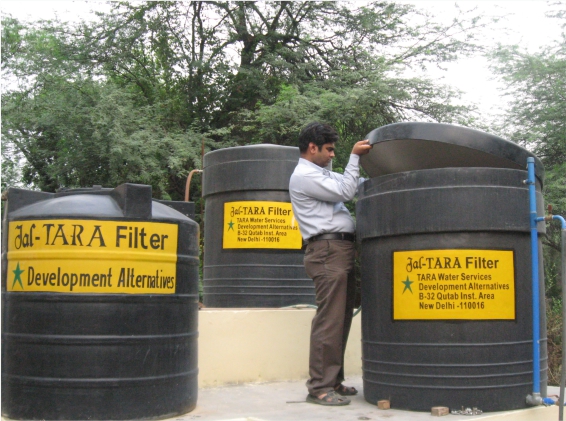Empowering fly ash brick entrepreneurs with technologies reduces the environmental impact associated with traditional clay brick production and addresses fly ash disposal.

Technology solutions
TARA aims to build capacity, incubate business models, and manage processes to create economic, social, and environmental value on a large scale. Business models based on sustainable technological packages offer a more sustainable future by integrating environmental, social, and economic considerations.
These solutions encompass many innovations and practices that promote low carbon emissions, resource efficiency, reduce environmental impact, and foster social well-being. The benefits extend beyond environmental advantages by creating opportunities for innovation, entrepreneurship, and job creation, driving a circular economy model and social development in parallel. The impacts align well with the defined Sustainable Development Goals (SDGs) set by the United Nations.
Through sustainable technologies, TARA aims to improve the quality of life and create a healthier planet for future generations.

Waste Management
The linear take–make–waste approach, i.e., from extraction of raw materials to the product disposal stage, not only contributes to a constant chain...
Read More
Water Solutions
Access to water quantity (security) and quality (safety) is the biggest challenge being faced today due to rapid modern development activities...
Read More
Green Energy
India has made significant progress in renewable energy, ranking fourth in the world with a total installed capacity of 168.96 GW. However...
Read More